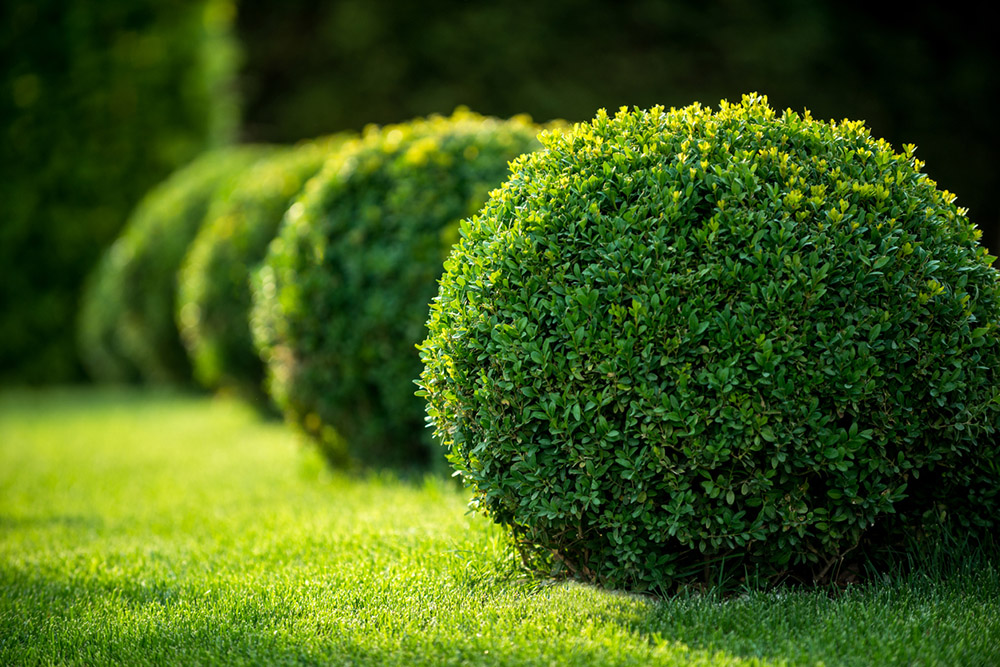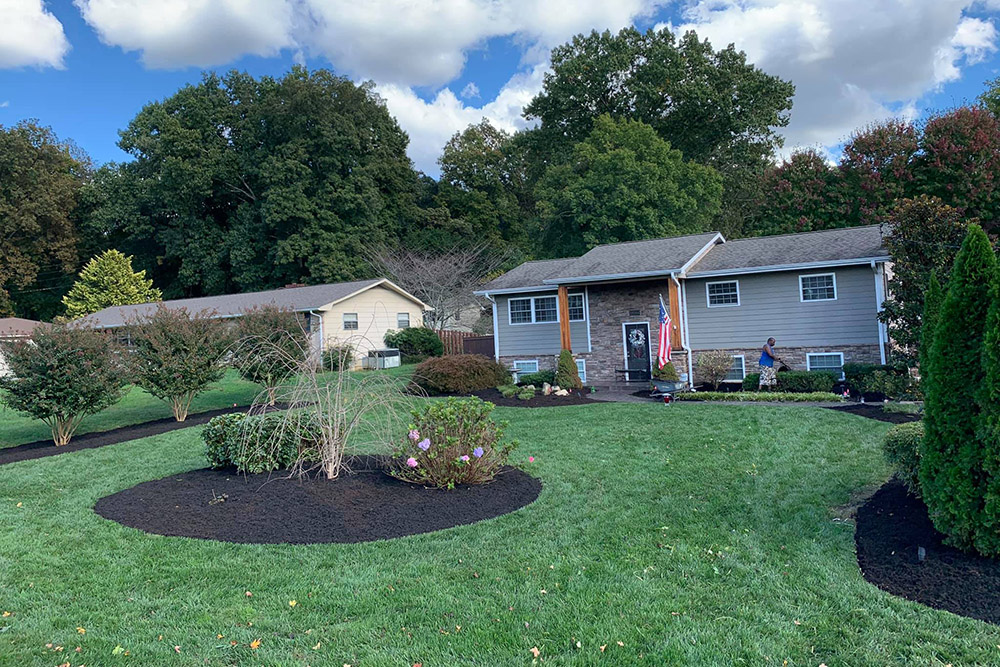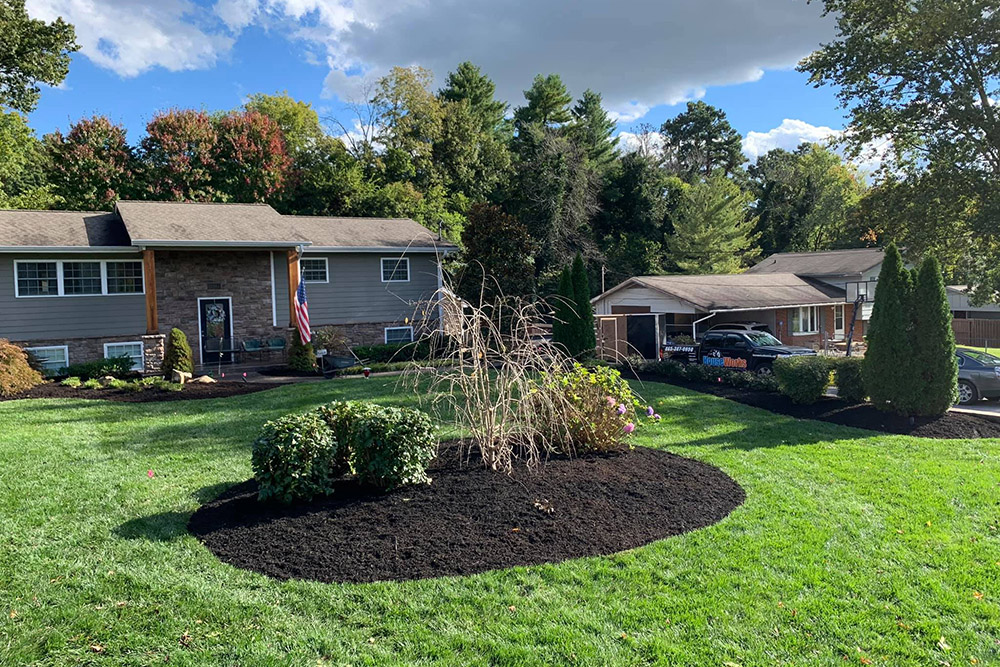Mulching: Improve your soil, plant and landscaping.
Mulching your landscaping can provide an abundance of positive results for your yard. When applied correctly, mulching has the following beneficial effects on your soil, plants and landscaping:
Reduces the growth of weeds, when the mulch material itself is weed-free and applied deeply enough to prevent weed germination or smothering existing weeds.
Keeps the soil cooler in the summer and warmer in the winter, thus maintaining a more even soil temperature.
Keeps the soil more moist.
Organic mulches can improve the soil structure.
As the mulch decays, the material becomes topsoil. Decaying mulch also adds nutrients to the soil.
Mulch can add to the visual appeal of the landscape by providing a cover of uniform color and interesting texture to the surface.
Mulched plants have more roots than plants that are not mulched, because mulched plants will produce additional roots in the mulch that surrounds them.
Improved the fertility and health of the soil.
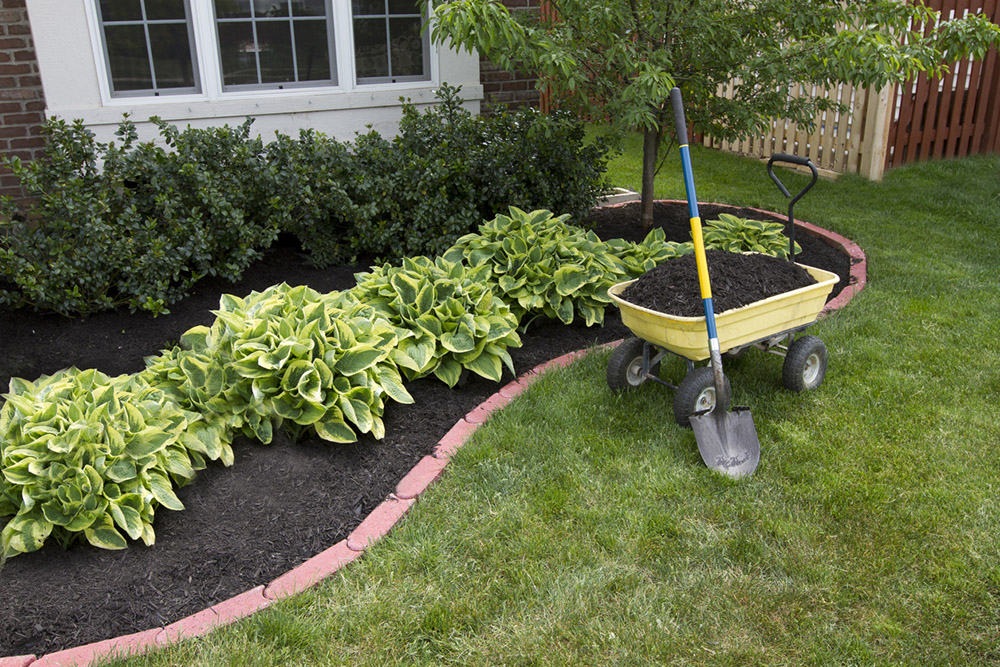
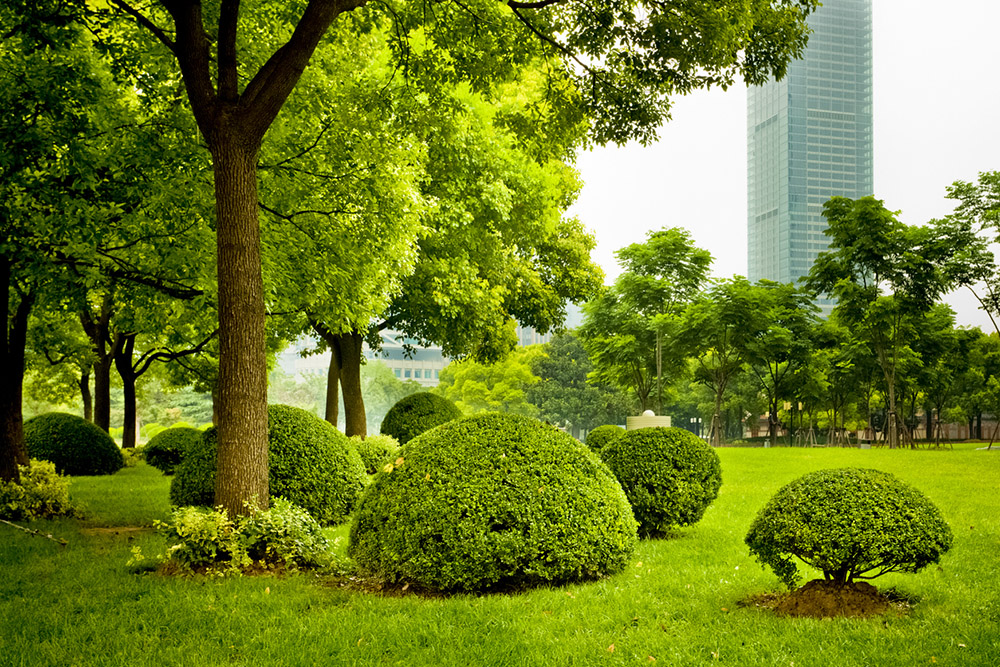
Blake did a great job taming our flower beds. They were in bad shape, full of weeds and overgrown bushes. Now it’s a different flower bed! Looks great!
Types of Mulch:
Organic mulches include formally living material such as straw, grass clippings, leaves, compost, wood chips, sawdust, shredded bark and pine needles.
In-organic mulches include black plastic and landscape fabrics (also known as geotextiles)
While both types of mulch can discourage the growth of weeds, it is the organic mulch that while new or old, is constantly providing nutrition to your soil, plants and grass. Inorganic mulches do not contribute to the quality or enrichment of the soil as it decays. However, one benefit of inorganic mulch is that it radiates late and warms the soil during the warmer months of the year which can be good for certain plant types that prefer to stay warmer throughout the night (for example, vegetables).
Mulching Prevents the Following:
- Prevents loss of water from the soil by evaporation.
- Prevents soil splashing, which not only stops erosion but keeps soil-borne diseases from splashing up onto the plants.
- Prevents crusting of the soil surface, thus improving the absorption and movement of water into the soil.
- Prevents the trunks of trees and shrubs from damage by lawn equipment as it prevents soil compaction.

